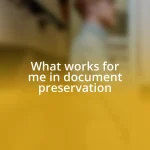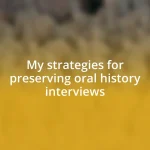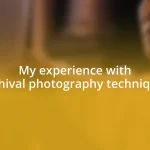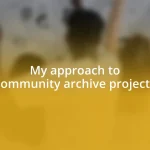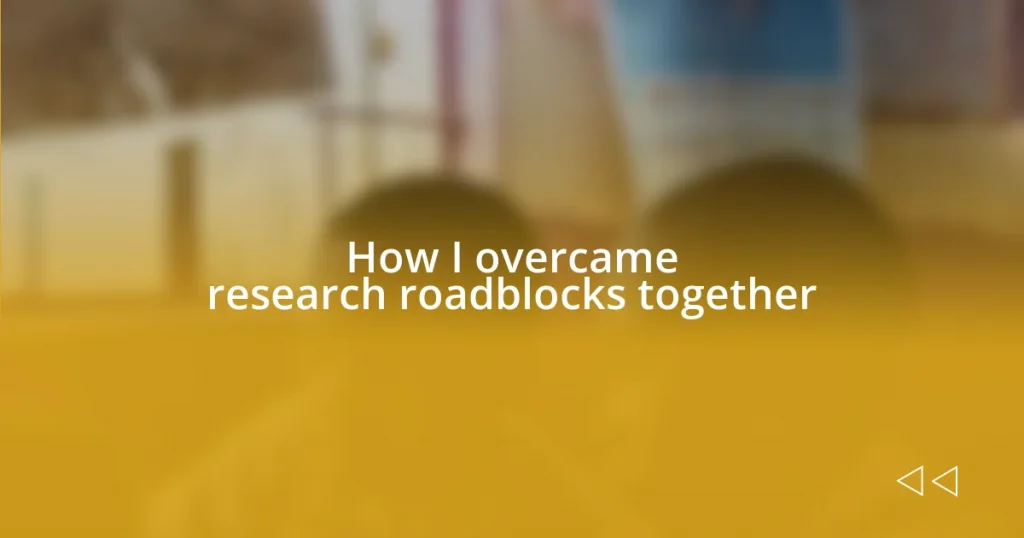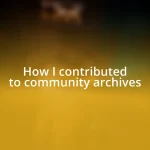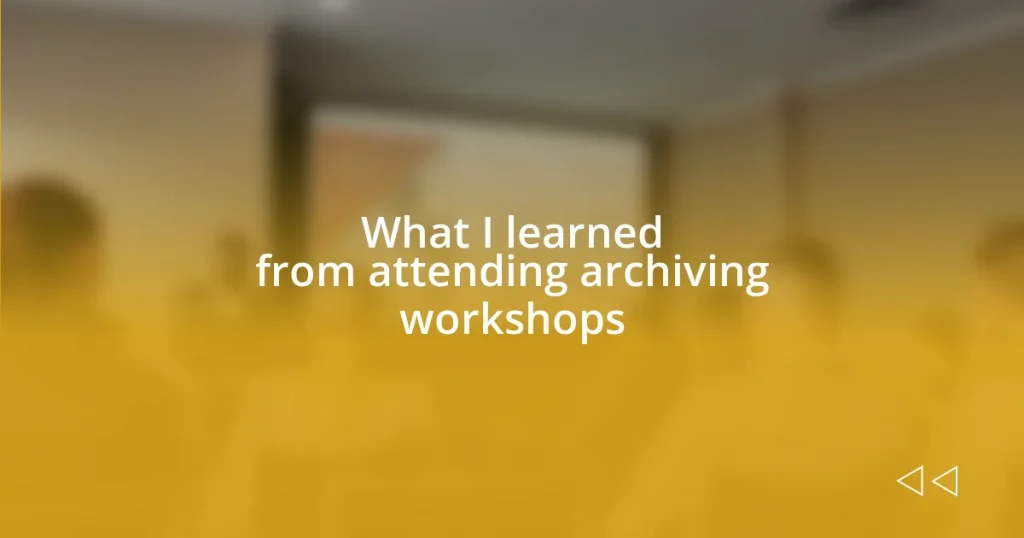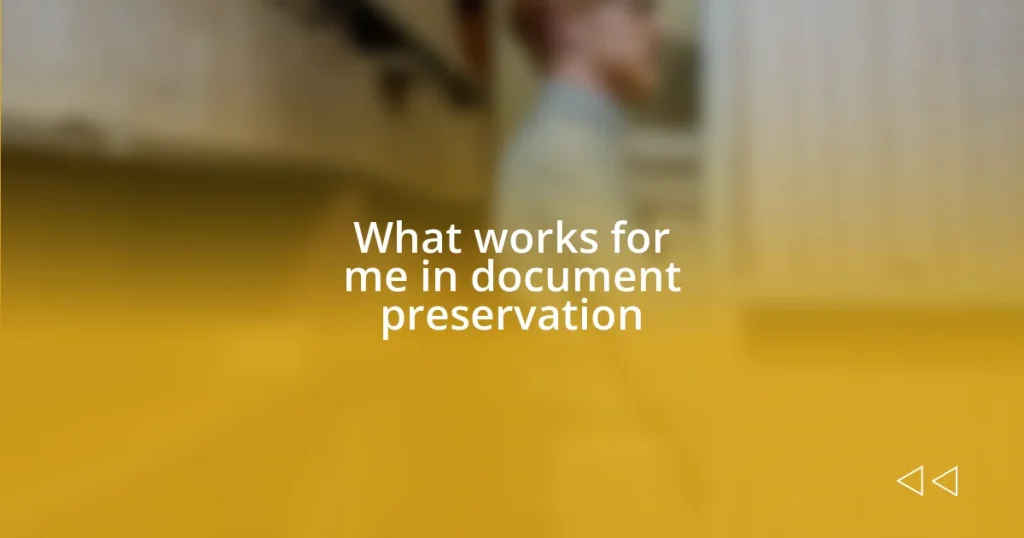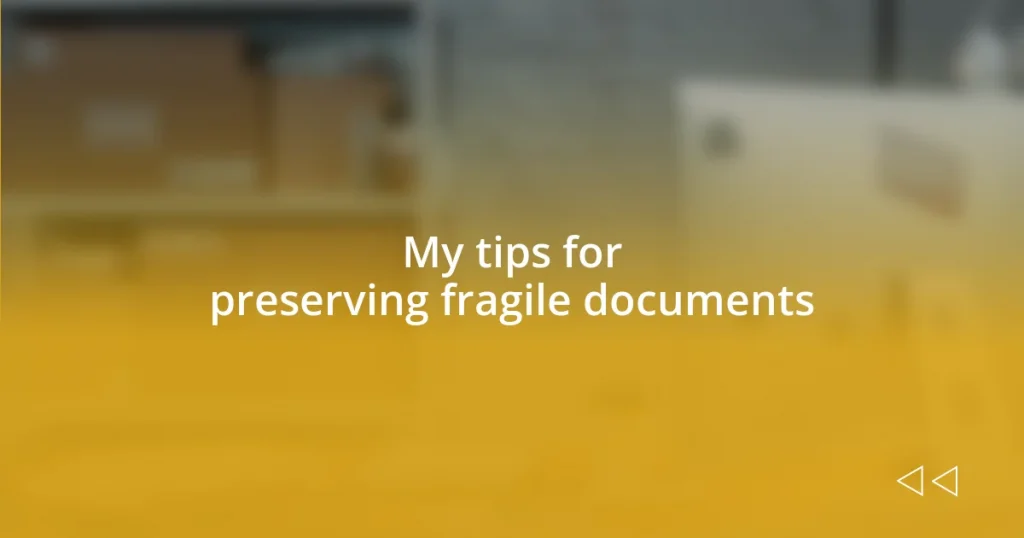Key takeaways:
- Recognizing both internal and external challenges in research allows for a proactive approach, transforming roadblocks into opportunities for growth.
- Developing a flexible strategic plan helps clarify goals, prioritize tasks, and maintain accountability throughout the research journey.
- Collaborating with peers and mentors fosters support, provides fresh perspectives, and enhances overall engagement and understanding in research projects.

Understanding research roadblocks
Research roadblocks can feel like an uninvited guest that overstays their welcome. I remember sitting at my desk, staring at a blank screen, feeling the weight of frustration pressing down on me. It’s as if I was trying to run a marathon but kept tripping over invisible hurdles. Have you ever felt that way? When I encountered those moments, I realized it was crucial to address the emotional weight that came with the stagnation.
One particularly rough patch for me involved a lack of resources, which made me question my capabilities. I found myself poring over countless databases, only to hit a wall every time I thought I was onto something good. This was more than just a practical challenge; it was an emotional rollercoaster that left me doubting my direction. I had to ask myself, what do I truly need to move forward?
Sometimes, the roadblocks aren’t just about the data or methods; they stem from within, stemming from expectations and self-doubt. As I navigated this journey, I learned that recognizing these internal barriers was just as important as addressing the external ones. What if, instead of viewing these hurdles as setbacks, we see them as opportunities for growth? That shift in perspective opened up new pathways for creativity and problem-solving in my research.

Identifying your specific challenges
Identifying specific challenges in your research can be quite the eye-opener. During my own journey, I found that just naming the roadblocks often made them less daunting. I vividly remember a time when I struggled to narrow down my topic. It took a few heart-to-heart conversations with peers to realize that my fear of settling on “just one” idea was actually holding me back. Once I pinpointed that hesitation, it opened the door for clearer focus and purpose.
Here are some common challenges I’ve identified along the way:
- Lack of resources: Struggling to access the right materials could feel like trying to navigate a maze blindfolded.
- Time management: Balancing research with other commitments often felt overwhelming, leaving me feeling scattered.
- Self-doubt: The nagging voice of uncertainty can make even the best ideas feel unworthy.
- Scope creep: I used to find myself adding more questions than I could answer, leading to confusion and frustration.
- Methodological uncertainty: Choosing the right research methods can be like picking a waypoint on a long journey—critical for success but easy to get wrong.
By acknowledging these specific challenges, I began to understand that they were part of the process—not the end of it. Each challenge became an opportunity to grow and rethink my approach.

Developing a strategic plan
Developing a strategic plan can be a game-changer when you’re facing research roadblocks. I remember taking a step back one day, realizing that what I truly needed was a roadmap to guide my efforts. This plan didn’t have to be rigid; rather, I saw it as a living document that could adapt as I discovered new challenges and insights. The freedom that came with this flexibility allowed me to approach my research with renewed energy and creativity.
As I began sketching out my strategic plan, I used simple bullet points that outlined my goals. Next, I included potential obstacles and resources needed to overcome them. I can’t emphasize enough how this structured approach clarified my thoughts. It felt like navigating with a compass instead of wandering blindly. Can you recall a time when having a clear direction made a difference in your work? This is the essence of developing a strategic plan—it’s about fostering a proactive mindset toward the challenges ahead.
A strategic plan not only helps in visualizing the path forward but also in prioritizing tasks. I found that by listing out my weekly goals aligned with my larger objectives, I could keep myself accountable. For example, dedicating Mondays to literature review and Wednesdays to data collection made my weeks more manageable. This routine reduced anxiety and provided a sense of accomplishment that propelled me forward. It’s fascinating how such small changes can build momentum; perhaps it’s time for you to explore how a structured plan could work wonders in your research journey.
| Elements of a Strategic Plan | Example from My Experience |
|---|---|
| Goals | Improve literature review efficiency |
| Identified obstacles | Lack of access to specific databases |
| Resources needed | Library access and interlibrary loan |

Collaborating with peers and mentors
Collaborating with those who understand your journey can be incredibly liberating. I clearly recall a study group session where I shared my struggles with methodology. It was enlightening to hear my peers lay out their own hurdles, transforming what felt like isolation into a collective brainstorming session. Suddenly, I had fresh perspectives and tips on navigating complex research designs.
Mentorship can truly change the game. One of the most pivotal moments in my research was when I sought guidance from a seasoned professor. I shared my fear of self-doubt, and to my surprise, she admitted to similar feelings during her own work. This candid conversation not only fostered a deeper connection, but it also taught me that even experienced researchers face these barriers. Sometimes, simply knowing that you’re not alone can spark the courage to move forward.
Regular check-ins with both peers and mentors became my anchor during moments of confusion. I started scheduling brief catch-ups to discuss progress and hurdles. These informal chats often provided clarity and motivation. Do you ever feel like a little encouragement can breathe life into your projects? I certainly do. Each interaction reminded me that collaboration is not just about sharing insights; it’s about building a supportive network that fuels resilience and creativity in our research endeavors.

Experimenting with alternative methods
Experimenting with alternative methods can be both a necessity and a thrilling experience. I distinctly remember a time when I hit a wall in my data collection phase. Frustrated, I decided to pivot from traditional surveys to interactive interviews. This shift didn’t just breathe new life into my research; it transformed the way I perceived the data. Have you ever considered how changing your approach can reveal insights you never anticipated?
Trying out different methodologies can bring unexpected reward. For example, I once integrated a visual storytelling technique into a project that was primarily quantitative. By mapping out data in a narrative format, my audience connected with the findings in a way that numbers alone couldn’t convey. Seeing their reactions made me realize that breaking the mold can cultivate deeper engagement and understanding. Isn’t it intriguing how a fresh angle can illuminate aspects of your work that seemed hidden?
In another instance, I opted for a participatory action research approach while working with a community group. This method allowed participants to contribute directly to the research, making them feel invested in the outcomes. It was incredible to witness their enthusiasm as co-researchers; they offered insights that I would never have uncovered alone. This experience reinforced my belief that experimenting with alternative methods doesn’t just enhance outcomes; it enriches the entire research journey. Have you thought about how involving others might change your perspective?
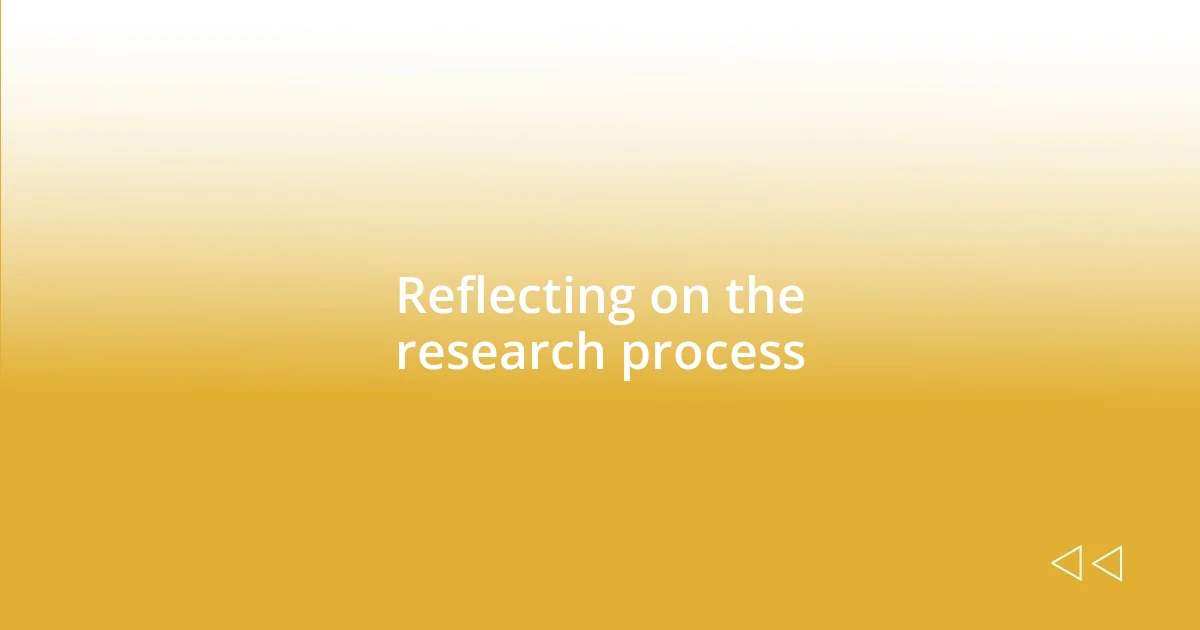
Reflecting on the research process
Reflecting on the research process has taught me that the path is rarely straightforward. I remember grappling with the sheer volume of literature I had to review. At times, it felt overwhelming, like standing at the foot of a mountainous library. But as I sifted through those pages, I discovered gems that shifted my understanding profoundly. Isn’t it fascinating how a single article can illuminate an entirely new perspective?
I also learned that reflection isn’t just about analyzing outcomes; it’s about embracing setbacks, too. There was a moment when my findings didn’t align with my hypotheses, and it felt like a personal failure. Yet, when I really dug into the reasons behind those discrepancies, I found unexpected insights that enriched my work. Have you ever had an experience where what seemed like a setback turned out to be a vital step forward? Recognizing these moments has been crucial; they’ve helped shape my overall narrative and led to deeper connections with my research.
Engaging in regular self-reflection truly transformed my approach. I started jotting down my thoughts after significant milestones, creating a dialogue with myself about successes and frustrations alike. This practice has allowed me to track my growth and remind myself of the lessons learned along the way. How often do we pause to appreciate the evolution of our thinking throughout a project? For me, these reflections serve not just as reminders of the road traveled, but as fuel for future adventures in research.

Celebrating your progress and results
Celebrating your progress and results is an essential aspect of the research process. I’ve often found that taking a moment to acknowledge even the smallest achievements can boost motivation. For instance, after completing a challenging phase of analysis, I’d reward myself with a simple but meaningful treat—a favorite coffee or a walk in the park. Have you considered how rewarding yourself can reinforce your dedication to the work?
I vividly recall the excitement I felt when my research project finally came together. The day I received positive feedback from my peers was exhilarating! Their recognition of the hard work poured into the project made every frustrating moment worthwhile. It was as if all those late nights and revisions had culminated into something greater. Have you ever experienced that rush of validation? That sense of accomplishment not only fueled my confidence but also lit a fire for future projects.
Another pivotal moment was when I decided to share my work at a local conference. The experience was both thrilling and nerve-wracking. As I watched attendees nodding along and engaging with my findings, I realized that sharing my results extended the celebration beyond myself; it created connections and sparked conversations. Engaging with others about my research opened doors I hadn’t anticipated. Isn’t it amazing how celebrating progress with others can amplify our accomplishments and inspire even more growth?

